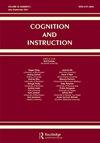“那么荨麻人不会孤独”:在土著STEAM夏季项目中认识植物的人格
IF 2.6
1区 心理学
Q2 PSYCHOLOGY, EDUCATIONAL
引用次数: 2
摘要
摘要在本文中,我们探讨了以STEAM为重点的土著青年暑期计划如何支持根据土著价值论(我们在美学或道德上重视什么)、本体论(我们认为什么是真实的,我们如何实现这些信念)和认识论(我们知道什么,我们如何知道)或AOE进行学习。这些AOE的一部分包括通过承认不仅仅是人的人格来建立亲属关系。我们认为(1)我们关于人性关系的社会文化、政治和伦理取向会影响我们的行为,(2)改变我们看待自然的方式(例如,承认植物的人格)可能是更公平的气候未来的有力贡献者。我们提出了一个案例研究的关系,一个人类的孩子,泰龙,和一种叫做刺网的植物。我们特别想回答:程序设计是否支持参与对工厂人格的认可?如果是,以何种方式?本文描述了植物人格识别的六个维度。研究结果说明了程序设计是如何导致强大的人与植物关系的发展的。我们讨论了STEM和气候变化教育在支持生态可持续生活和决策方面的影响。本文章由计算机程序翻译,如有差异,请以英文原文为准。
“Then the Nettle People Won’t Be Lonely”: Recognizing the Personhood of Plants in an Indigenous STEAM Summer Program
Abstract In this paper, we explore the ways that a STEAM-focused summer program for Indigenous youth supported learning in accordance with Indigenous axiologies (what we value esthetically or morally), ontologies (what we believe to be real and how we enact those beliefs), and epistemologies (what we know and how we know it) or AOE. Part of these AOEs include enacting kin relationships through recognizing the personhood of more-than-human beings. We posit that (1) our socio-cultural, political, and ethical orientations regarding human-nature relations affect our behaviors and that (2) shifting the way we view nature (e.g., recognizing plant personhood) may be a powerful contributor to more equitable climate futures. We present a case study of the relationship between a human child, Talon, and a plant called Stinging Nettle. We specifically move to answer: Did the program design support engagement in the recognition of plant personhood? If so, in what ways? The paper describes six dimensions of recognizing plant personhood. Findings illustrate how the program design resulted in the development of a strong human-plant relationship. We discuss implications for STEM and climate change education in supporting ecologically sustainable living and decision-making.
求助全文
通过发布文献求助,成功后即可免费获取论文全文。
去求助
来源期刊

Cognition and Instruction
Multiple-
CiteScore
7.90
自引率
12.10%
发文量
22
期刊介绍:
Among education journals, Cognition and Instruction"s distinctive niche is rigorous study of foundational issues concerning the mental, socio-cultural, and mediational processes and conditions of learning and intellectual competence. For these purposes, both “cognition” and “instruction” must be interpreted broadly. The journal preferentially attends to the “how” of learning and intellectual practices. A balance of well-reasoned theory and careful and reflective empirical technique is typical.
 求助内容:
求助内容: 应助结果提醒方式:
应助结果提醒方式:


